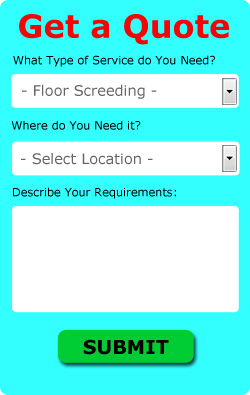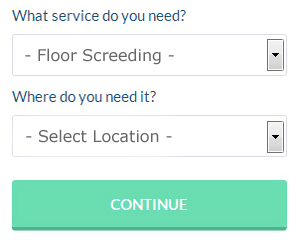Floor Screeding Derby Derbyshire (DE1): When you're renovating your Derby property that has damaged or uneven floors, or maybe converting a basement or cellar to useful living area, an established floor screeding company will be able to help with your home improvements. A screed is used to create a smooth floor surface over a concrete sub-base and give a level foundation for you final flooring material. If you would like your floors to last a long time then floor screeding is one of the most important factors in any renovation or building task.
FLOOR SCREEDING COMPANIES DERBY
Whatever size room or area you are renovating, a local screeding specialist in Derby can supply the expertise and proper working practices to generate the perfect base for your floors. They'll be able to assess your project and verify the appropriate sort of screed you require and how best to apply it.
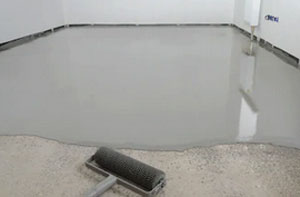
The screeding contractor will also tell you if a structural engineer is needed for your undertaking, to evaluate flex strength, load requirements and point loadings that your screed floor may need to conform with current British Standards and building regulations.
Working with a skilled and qualified contractor will guarantee you use the proper sort of screed for the room's intended usage to extend the lifespan of your floor. There are many different kinds of screed and choosing the appropriate mix and laying technique is vital to create a top quality floor that is fit for purpose and long-lasting.
Before selecting a floor screeding specialist from any based in the Derby area, ask to what standard of finish they're basing their quote, and also make certain you get multiple quotes. The price quote should be based on what is known as the Surface Regularity, or SR figure. SR2 and SR3 will be cheaper options, although the finished floor surface may have errors and deviations, whilst SR1 guarantees a pretty much perfect quality of finish. Any error in the final screeding may cause problems in laying flooring owing to indentations, flat spots, ridges in the surface.
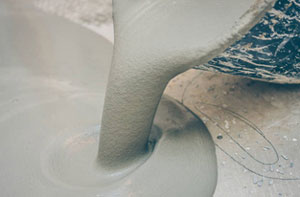
British Standards BS8204 lays down the regulations and guidelines that all Derby screeding contractors is obliged to follow, and if applying specialist screeding solutions, (Gypsol, Cemfloor, Flowcrete etc), they must be certified by the manufacturers as being skilled and trained in their use. A contractor holding such accreditation proves that they have been trained and assessed in the use of these screeding products and can provide a high quality standard in all areas of their installation.
Commercial screeders in Derby will probably tackle screeding projects in schools, factories, hospitals, restaurants, warehouses and shopping centres.
TYPES OF SCREED
Standard Screeds - A combination of sand and cement which is ideal for regular domestic use. The ratios involved are five parts sand to one part cement. After being laid a standard screed sets at a rate of just 1mm/day.
Fibre Reinforced Screed - The professional's choice for domestic use over the top of underfloor heating. The improved strength and flexibility provided by the special fibres in the screed help protect the floor from shrinkage and cracking due to heat. It dries out at the same rate as a standard screed of one millimetre per day.
Advanced Drying and Fast Drying Screeds - If you have to move forward urgently with the work because of time limitations, these screeds dry much quicker than standard screeds. Drying out at a rate of 3-7mm/day, determined by the mix, they're typically a fibre reinforced kind of screed and are ideal for flooring projects which have tight deadlines.
Polymer Screeds - When a decreased thickness of floor is needed because of construction requirements, a polymer screed provides a high strength solution to the problem. Polymer screeds are made by a number of manufacturers and on account of their different chemical compositions have specific drying times for each product.
Industrial and Heavy Duty Screed - A screed designed for high load and heavy traffic areas where maximum strength and durability is very important.
Self-Levelling or Liquid Screeds - When the highest possible standard of finish is necessary this blend of latex and cement is employed to produce SR1 level floor screeding. Mostly used to improve a damaged floor or poor substrate level in order to lay a brand new flooring surface, like vinyl planks over it. Even with a thickness of only one millimetre, the latex polymers within the mixture provide a high strength surface for a wide range of uses.
SCREEDING PREPARATION AND INSTALLATION
Good preparation is vital for a top quality screed surface that will be hard wearing and durable. The original floor surfaces should be cleaned to eliminate any oil, paint, debris and grease which can affect the adhesion of the screed.
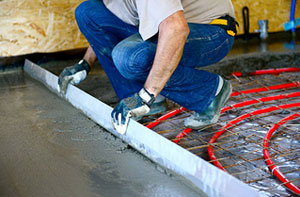
Any cleaning products which are used in this stage shouldn't leave any residues, and the floor base must be permitted to dry by itself naturally. At this stage any cracks should be repaired since these can travel up through a newly laid screed and be reflected in the completed floor surface. An on-site survey will allow the screeding company to pinpoint these preparation areas and complete them before beginning to lay the screeding.
To protect the flooring materials and screeding layer from dampness rising up from the ground, a DPM (damp proof membrane) must be laid. Different gauges of special polythene may be used as a DPM and also act as a barrier for the screed and any insulation material.
If the area is at risk from radon then one additional barrier is necessary to stop this harmful gas from entering via the ground. A simple airtight membrane may be sufficient in areas with low radon emissions, but in more severe cases there might need to be a more complex extraction and ventilation system to remove any harmful radon gas.
Once these stages have been completed the screeding company will put on a primer or sealer to the prepared base surface. These sealers and primers will ensure that the screed bonds properly to the base and help to produce a top quality finished floor. These substances need skilled tradesmen to apply them in the right proportions by using airless sprays and other tailor-made equipment.
Now is the time that under floor heating can be laid out in the correct manner and installed. Insulation panels will be put in position and the heating pipes and cables will be securely attached so there's no movement while the screed is poured. Underfloor heating is one of the most effective ways to heat a room and a properly installed system will provide even warmth in all areas of the floor.
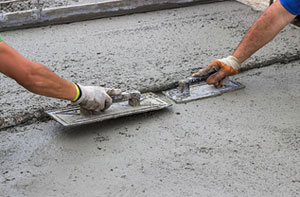
Of course, if you are not fitting under floor heating, you can skip this stage and apply the screeding. Your proposed use of the room will assist the screeding company on which type of floor screed is appropriate for your needs. Remember that even advanced and quick drying screeds have a minimum of twenty four hours before you can walk over any screeded surface and a minimum 72 hours before any flooring can be applied. Manufacturer's drying guidelines for heavy duty and standard screeds should be followed in order to achieve a quality finish and end up with a stable and even surface.
The SR level of your screeding can be checked once it's set enough to be walked on. The test involves the use of a two metre long straight-edge laid on the surface and any deviations from true are calculated.
- SR1 - Deviations of 3mm or less being measured over the whole area shows your screed floor to be of the finest quality and classed as SR1.
- SR2 - SR2 is the classification for normal standard commercial and industrial floors and can deviate from the straight-edge by as much as 5 millimetres.
- SR3 - For other floors where the quality of finish is comparatively inconsequential the SR3 is the specification and should have a deviation measurement of ten millimetres or less.
If you need to check the floor for load bearing, a qualified structural engineer is needed to conduct the testing. The testing will make certain that your new screed surface is suitable for the load bearing requirements laid out in the original site survey. This will include a drop hammer test which assesses various aspects of the strength and flexibility of the screed. Any screed floor that has point load requirements must be sanctioned by a competent structural engineer observing the BS8204 regulations. (Tags: Floor Screeding Services Derby, Floor Screeding Derby, Screeding Derby, Floor Screed Derby).
Floor screeding services are available in Derby and also in: Draycott, Chellaston, Long Eaton, Allestree, Quarndon, Hilton, Egginton, Borrowash, Spondon, Tutbury, Oakwood, Melbourne, Morley, Brailsford, Castle Donington, Repton, Kegworth, Stapleford, Willinton, Mickleover, and in these postcodes DE1 0LG, DE1 0WB, DE1 0BD, DE1 0JG, DE1 0JR, DE1 0UX, DE1 0DP, DE1 0TJ, DE1 0UN, and DE1 0PN. Locally based Derby floor screeders will most likely have the postcode DE1 and the dialling code 01332. Verifying this will make sure that you're accessing local screeding. Derby homeowners will be able to utilise these and many other building related services. If you want to obtain an estimate for screeding services, you can easily do so by clicking on the "Quote" banner.
Related Tasks

There are a number of different tasks that can be conducted by your local Derby floor screeding company including underfloor heating installations in Derby, floor restoration, garage floor screeding Derby, self-levelling screeding, concrete pumping Derby, acoustic flooring, rapid strength screeds, floor insulation, floor levelling Derby, floor screeding tools in Derby, domestic floor screeding Derby, floor screed testing Derby, polished screeding in Derby, basement screeding, shop floor screeding, bonded concrete floor screeding, screed repairs in Derby, floor screeding, and more floor screeding tasks.
Tools Needed by a Floor Screeder
- Tape Measure
- Knee Protection
- Floor Profile
- Straight Edge
- Spade
- Trowel
- Wheelbarrow
- Heavy Duty Spirit Level
- Gloves
- Float
- Spiked Roller
Floor Screeding Near Derby
Also find: Mickleover floor screeding, Morley floor screeding, Borrowash floor screeding, Tutbury floor screeding, Hilton floor screeding, Castle Donington floor screeding, Chellaston floor screeding, Oakwood floor screeding, Egginton floor screeding, Brailsford floor screeding, Kegworth floor screeding, Long Eaton floor screeding, Stapleford floor screeding, Willinton floor screeding, Draycott floor screeding, Spondon floor screeding, Repton floor screeding, Allestree floor screeding, Melbourne floor screeding, Quarndon floor screeding and more. There are companies who do screeding in most of these villages and towns. These professionals, with their necessary expertise and skills, excel in providing the best quality screeding solutions. Their proficiency in screeding for residential and commercial properties ensures that the task adheres to the highest possible standards. By simply clicking here, local home and business owners can obtain screeding quotations.
Floor Screeding Services Derby
- Derby Floor Screeding
- Derby Fast-Dry Screeding
- Derby Floor Insulation
- Derby Cheap Floor Screeding
- Derby Screed Calculator Service
- Derby Polished Screed Floors
- Derby Industrial Screeding
- Derby Floor Screeding Advice
- Derby Domestic Floor Screeding
- Derby Liquid Screeds
- Derby Floor Damp Proofing
- Derby Fibre Reinforced Screeding
- Derby Underfloor Heating Installations
- Derby Screeding Services
Other Useful Trades in Derby Derbyshire
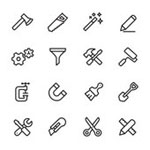
Not surprisingly, whenever you are doing home repairs and improvements in Derby, Derbyshire, you'll probably need all sorts of different tradespeople and aside from a floor screeder in Derby, Derbyshire, you might also need linoleum flooring in Derby, a building contractor in Derby, a bricklayer in Derby, waste removal in Derby, a plasterer in Derby, a carpet fitter in Derby, a floor tiler in Derby, a plumber in Derby, a heating engineer in Derby, an underfloor heating specialist in Derby, a handyman in Derby, an electrician in Derby, a carpenter in Derby, vinyl flooring in Derby, and other different Derby tradesmen.
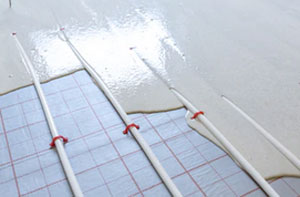 Floor Screeding Derby
Floor Screeding Derby Screeding Near Me
Screeding Near Me Floor Screeders Derby
Floor Screeders DerbyMore: Coloured Screeding, Cheap Screeding, Self-Levelling Screeds, Screeding Companies, Coloured Screeding, Self-Levelling Screeds, Floor Levelling Services, Screed Reinforcement, Cheap Floor Screeding, Polished Screeding, Screeding Specialists, Cheap Floor Screeding, Decorative Screeding, Polished Screeding, Screeding Companies, Screeding, Polished Screeding, Cheap Floor Screeding, Cheap Floor Screeding, Screed Floors, Screeding Services, Screeding, Screeding Companies, Screeding Contractors, Floor Screeding, Screeding Services, Screed Flooring, Coloured Screeding, Floor Screeding, Screeding Contractors, Floor Screeding, Residential Screeding, Self-Levelling Screeds, Floor Screeding, Concrete Driveway Experts, Concrete Driveways, Driveway Installer.
Local Derby facts and info can be seen here
Floor screeding in DE1 area, 01332.

